MASTERS OF THE AIR (2024) – Miniseries
During WWII, five miles above the ground and behind enemy lines, 10 men inside a bomber known as a "Flying Fortress" battle unrelenting flocks of German fighters.
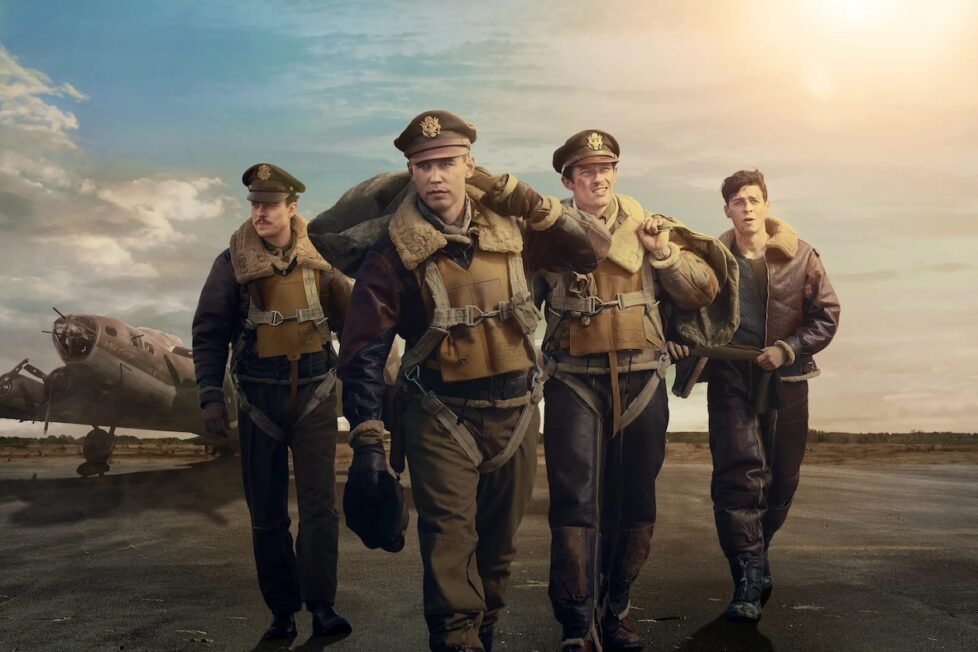
During WWII, five miles above the ground and behind enemy lines, 10 men inside a bomber known as a "Flying Fortress" battle unrelenting flocks of German fighters.


Fans of World War II dramas like HBO’s Band of Brothers (2001) and The Pacific (2010) were delighted when rumours were confirmed of a third show in the series focusing on the 100th Bomber Group. Given their gripping story, recounted in a bestselling 2007 book by Donald L. Miller, and with the promise of Tom Hanks and Steven Spielberg attached as producers, Masters of the Air had all the hallmarks of prestige television at its finest. But now the final episode has aired and the dust from the many crashed planes has settled, it seems as though our hopes and expectations may have been set too high.
Masters of the Air, based on the aforementioned book Masters of the Air: America’s Bomber Boys Who Fought the Air War Against Nazi Germany, centres on the 100th Bomber Group of the Eighth Air Force. This group of Americans, stationed in the UK, faced the perilous task of bombing vital Nazi factories and supply lines in France and Germany.
Their mission was made even more dangerous by the US insistence on daylight precision bombing. This approach minimised the risk of civilian casualties, but it also made them more vulnerable to enemy fighters. Their UK counterparts, on the other hand, considered daylight bombing to be “suicide” and opted for night raids. While night missions offered greater cover from enemy defences, they resulted in lower accuracy and, inevitably, a higher number of civilian casualties.
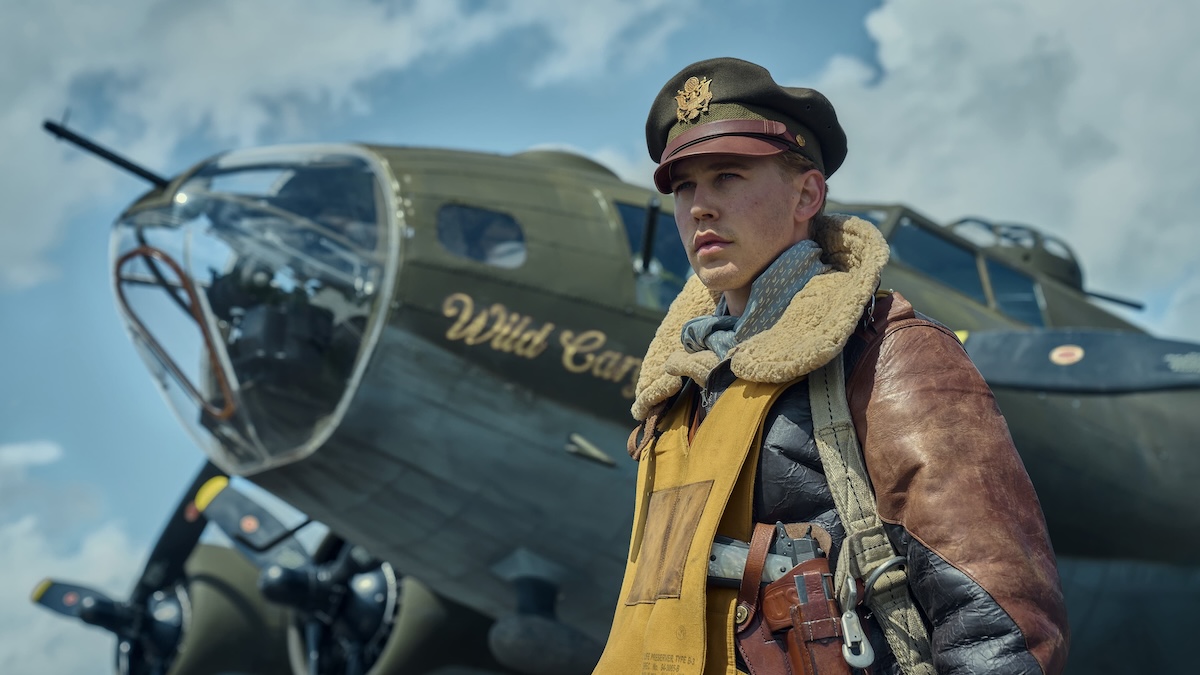
If this moral quandary, namely the lives of aircrew versus civilians, sounds like a fascinating premise, then all I can say is that it could have been. While the issue of day versus night bombing is touched upon in the early episodes, we never see it discussed in detail. The reason for this is perhaps that the miniseries doesn’t spend much time, if any, with the major decision-makers of the war. As with its companion miniseries, it focuses on the men who fought the war rather than the men who planned it.
This formula worked very well in Band of Brothers and The Pacific, but it falters when applied to the Air Force. The crux of the issue lies in the high casualty rate of the 100th Bomber Division. In the early days especially, very few bomber squadron crew members survived more than a handful of missions before being killed, shot down and captured, or lost behind enemy lines.
It is perhaps this harrowing statistic that is to blame. Instead of becoming familiar with the hopes, dreams, and camaraderie of a strong core of men, we’re introduced to a slew of characters whom we never get to know and whom we may only see for a single terrifying battle sequence before we’re forced to say goodbye forever.
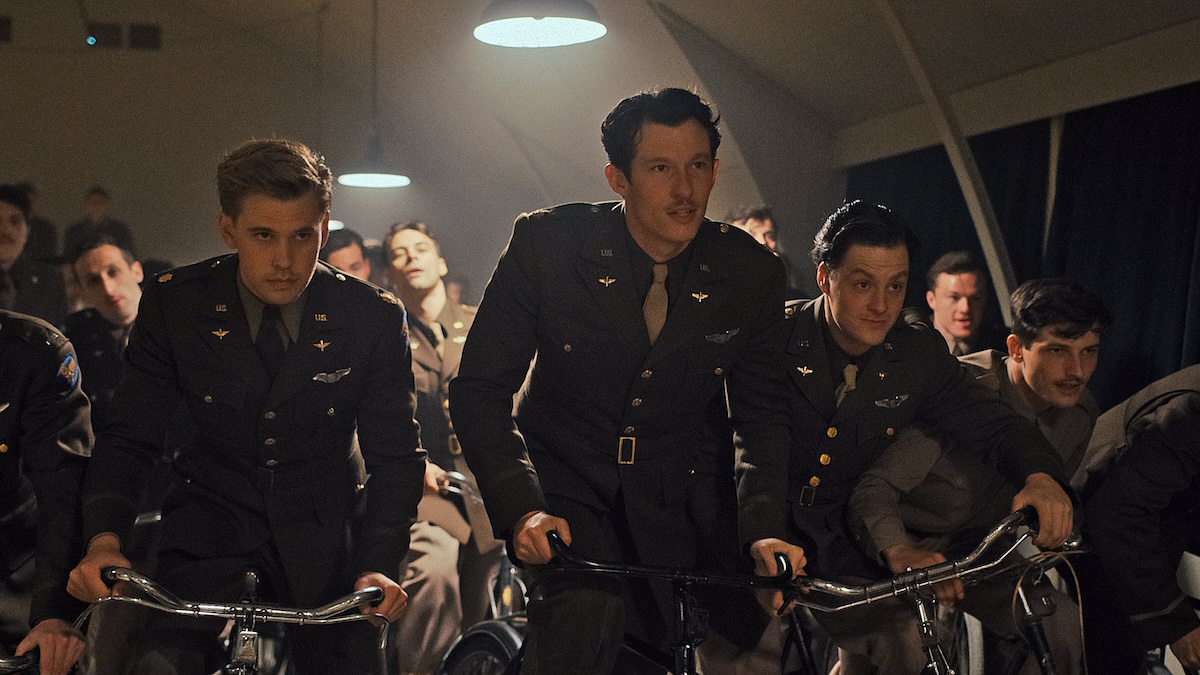
Despite the bloodshed in the 100th, several regular characters are supposed to keep us emotionally invested in the Eighth Air Force. John “Bucky” Egan (Callum Turner) and his best friend, Gale “Buck” Cleven (Austin Butler), are two such friends who join the group together. The show repeatedly draws attention to the similarity of their nicknames. However, it’s hard not to see the interchangeability of their names as a metaphor for the underdeveloped characters that emerge. The high body count of the brutal 100th doesn’t excuse all of this.
Other notable characters include navigator Harry Crosby (Anthony Boyle) and ace pilot Robert “Rosie” Rosenthal (Nate Mann). While all these talented young actors deliver their best performances and breathe life into their characters when given the opportunity, the characters themselves struggle under the weight of the writer’s and producers’ overambition in cramming too much into a nine-part series.
Whilst Buck and Bucky are introduced as very different characters, their differences and interplay are only explored in the first episode. The promising opening scene between Buck, Bucky, and Buck’s fiancée Marjorie Spencer (Isabella May), sets the tone for a well-acted, character-driven drama. Unfortunately, the expectations set by this excellent scene, much like the show’s overall promise, lead to disappointment.
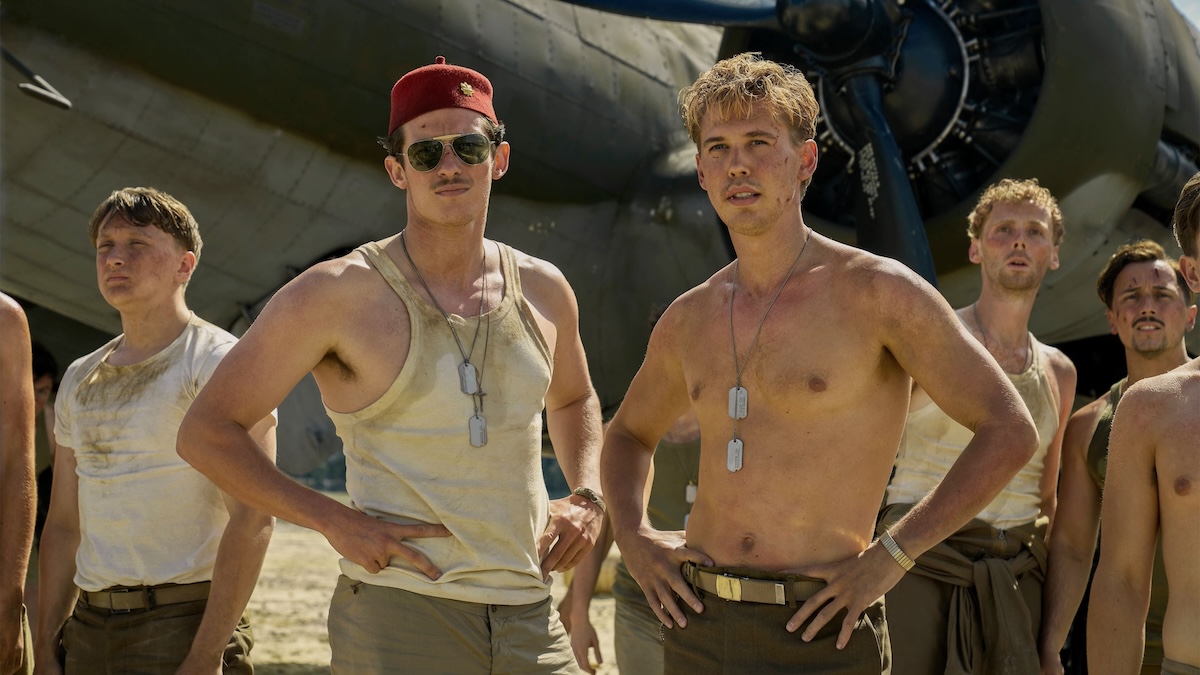
We do get glimpses of problems arising from the tense wartime situation, including alcoholism, overwork as a coping mechanism for guilt or grief, and some friction between the British and American soldiers. However, even for our main characters, these themes are never fully explored and rarely result in any significant consequences, behavioural changes, or shifts in moral perspective. All hints at character development and moral dilemmas seem to be abandoned in favour of focusing on aerial battles.
As soon as we reach the first dogfight, it becomes abundantly clear where all the love, effort, and expense of the project have gone. It is, indeed, harrowing and spectacular. Watching fighters and bombers manoeuvre and explode in mid-air, with the ticking clock of a critical mission raising the stakes, is edge-of-your-seat stuff. Everyone from the actors to the cinematographers to the VFX team has worked together to place viewers in the heart of a bomber crew, relentlessly pursued from all sides.
The aftermath of the bloodiest of these battles provides some of the most emotionally resonant performances in the series. In occasional, all-too-brief moments of clarity, we are allowed a glimpse of the stress, grief, and weight of these bombing missions on the men who continue to fly them.
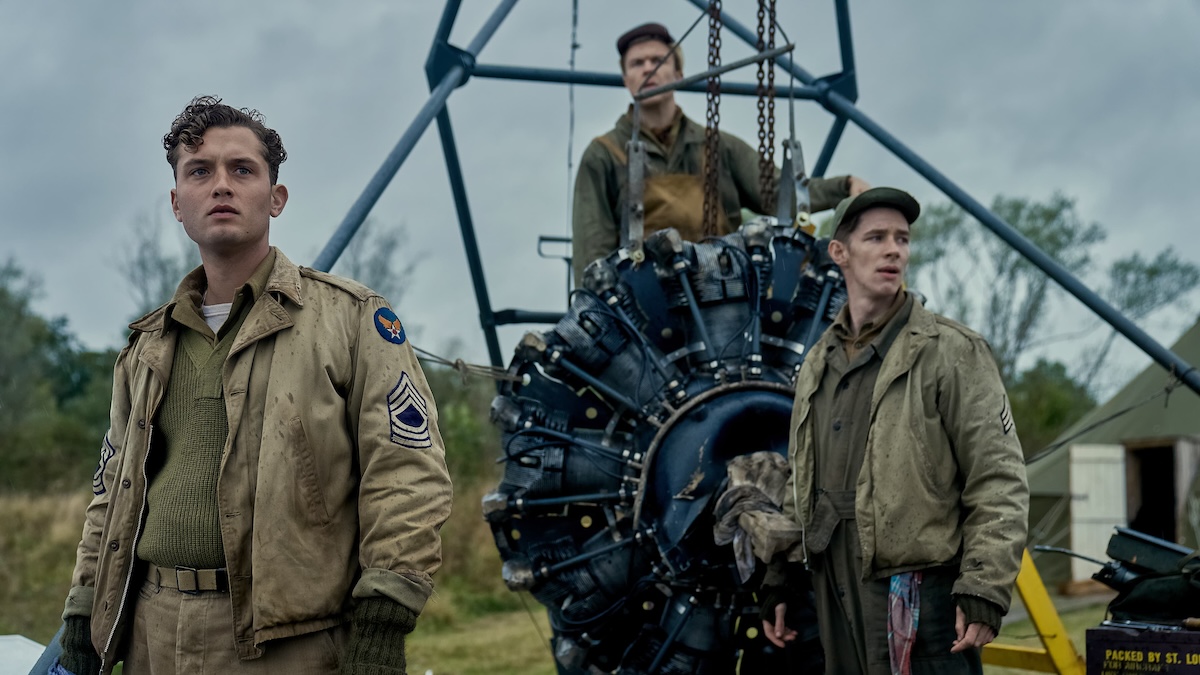
However, these moments of thematic resonance and character-driven emotion are quickly overshadowed by the writers’ and producers’ apparent need to cram every interesting aspect of the US Air Force, British Secret Service, and Nazi war crimes into the series.
This is another drawback of choosing an Air Force bomber group as the series’ central focus. Bomber pilots and crews, unless shot down behind enemy lines, rarely had the opportunity for face-to-face combat with the enemy. Similarly, contact with other Air Force squadrons outside their own base was uncommon.
Consequently, to depict British covert operations with the French Resistance or the heroism of the all-Black Tuskegee Airmen, the writers were forced to introduce characters who lacked consistent storylines, and unresolved plotlines left viewers unsatisfied.
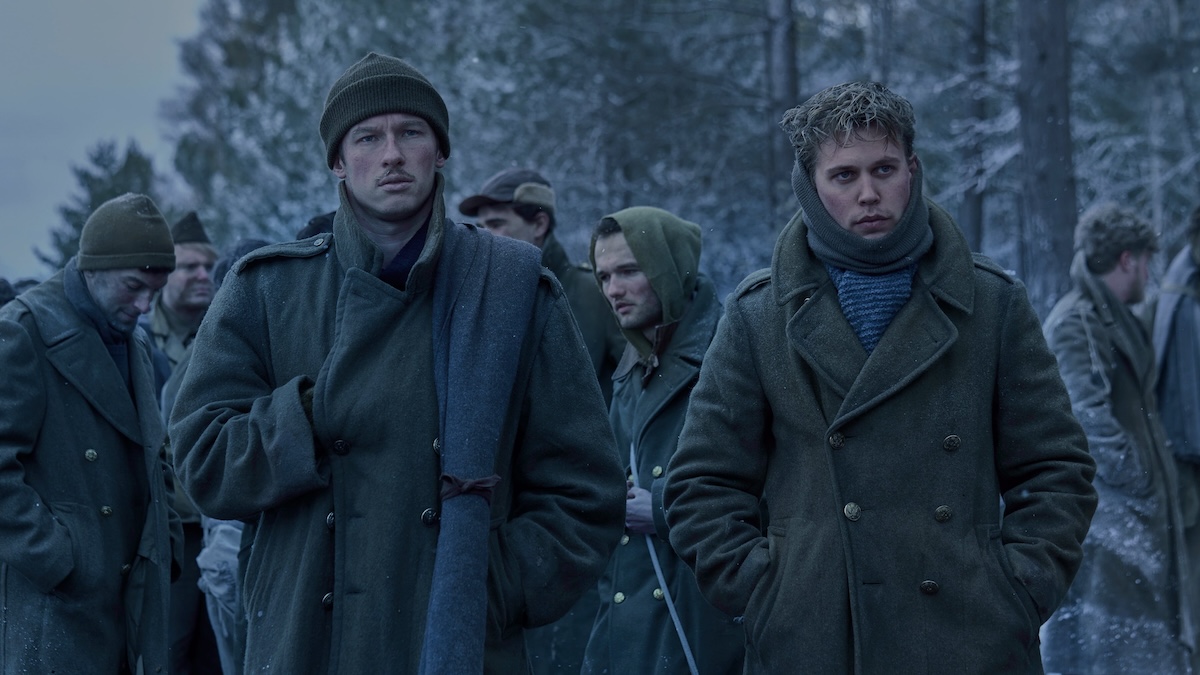
This is a great shame. After all, the men and women of the SOE (the British wartime secret organisation that evolved into MI5) and the Tuskegee Airmen deserve their own miniseries and could be compelling subjects. Instead, we are only shown a few scenes of their heroism before they’re abruptly abandoned with no explanation or closure.
If you, like me, were looking for redemption for the all-African American squadron after the disappointing George Lucas feature Red Tails (2012), then I’m afraid I have to warn you that you won’t find it here. The three Tuskegee pilots given any screen time don’t receive nearly enough to justify their subplot. Most of that time is devoted to discussions about racism in America, while no actual racism is depicted on screen, even when the Black pilots come into contact with white American pilots from the South. The interesting conflicts and American hypocrisy that we see in films like Hart’s War (2002) and shows like The Liberator (2020) are nowhere to be found. Similarly, the moral difficulties involved in daytime versus night-time bombing are mentioned but then swiftly shunted aside to make room for more aerial action.
Well-acted and beautifully shot with stunning aerial battles, Masters of the Air will nonetheless struggle to fully win over discerning fans of the genre. Its early episodes and thrilling dogfights may grip you, but compared to the emotional depth of Band of Brothers or the unflinching portrayal of hardship and moral complexities in The Pacific, Masters of the Air simply falls short. If all you crave is heart-stopping aerial action, this series delivers. However, for those seeking the full story of the heroic 100th Bombardment Group, Donald Miller’s book remains the superior choice, despite the show’s technical merits.
USA | 2024 | 9 EPISODES | 2.39:1 | COLOUR | ENGLISH

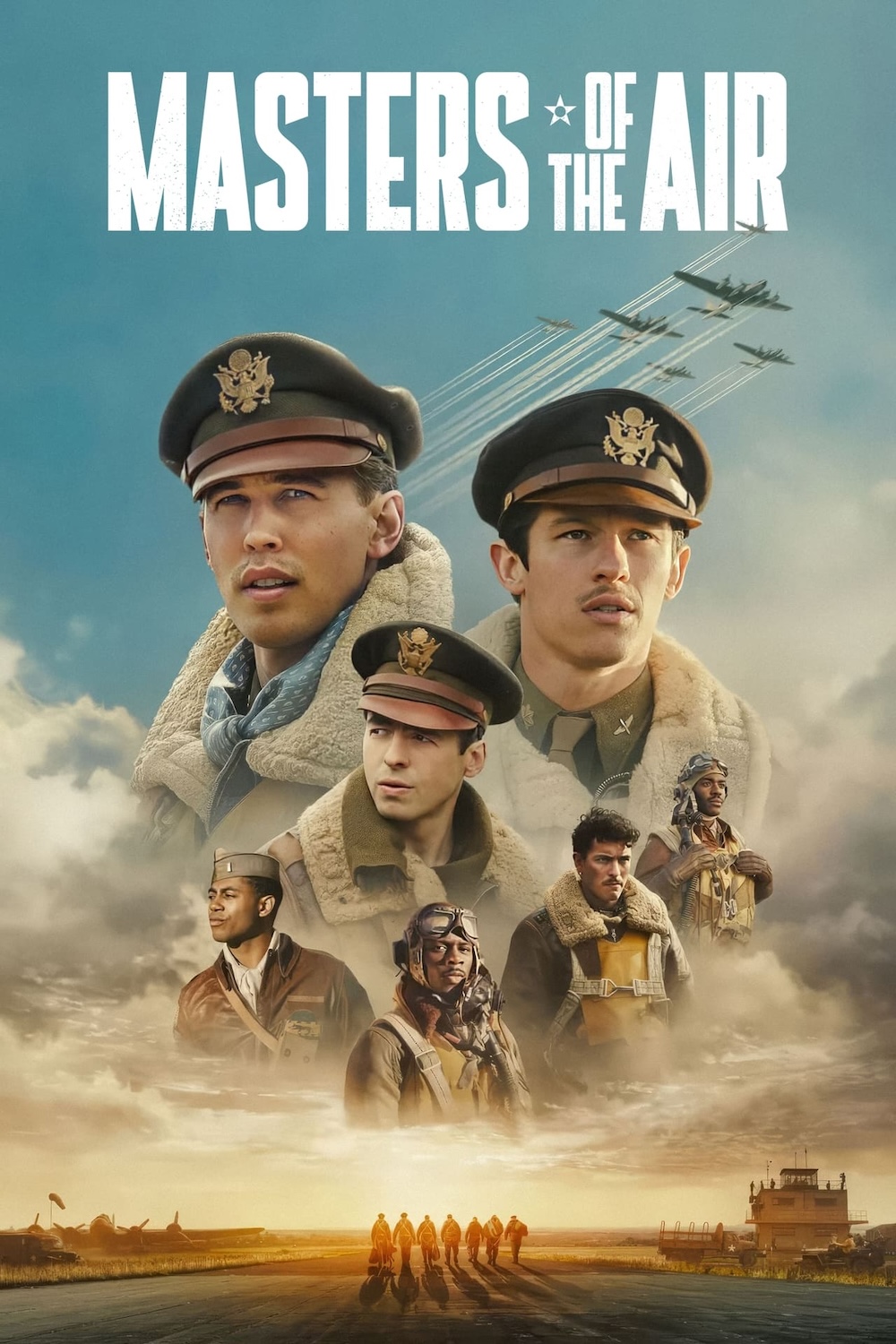
writers: John Orloff, John Shiban, Joel Anderson Thompson, Dee Rees & Morwenna Banks (based on the book ‘Masters of the Air: America’s Bomber Boys Who Fought the Air War Against Nazi Germany’ by Donald L. Miller).
directors: Cary Joji Fukunaga, Anna Boden, Ryan Fleck, Dee Rees & Tim Van Patten.
starring: Austin Butler, Callum Turner, Anthony Boyle, Barry Keoghan, Nikolai Kinski, Stephen Campbell Moore, Sawyer Spielberg, Isabel May, James Murray, Nate Mann, Kai Alexander, Laurie Davidson, Joanna Kulig, Louis Hofmann, Jamie Parker, Bel Powley, Sam Hazeldine, Ncuti Gatwa & Josh Dylan.
